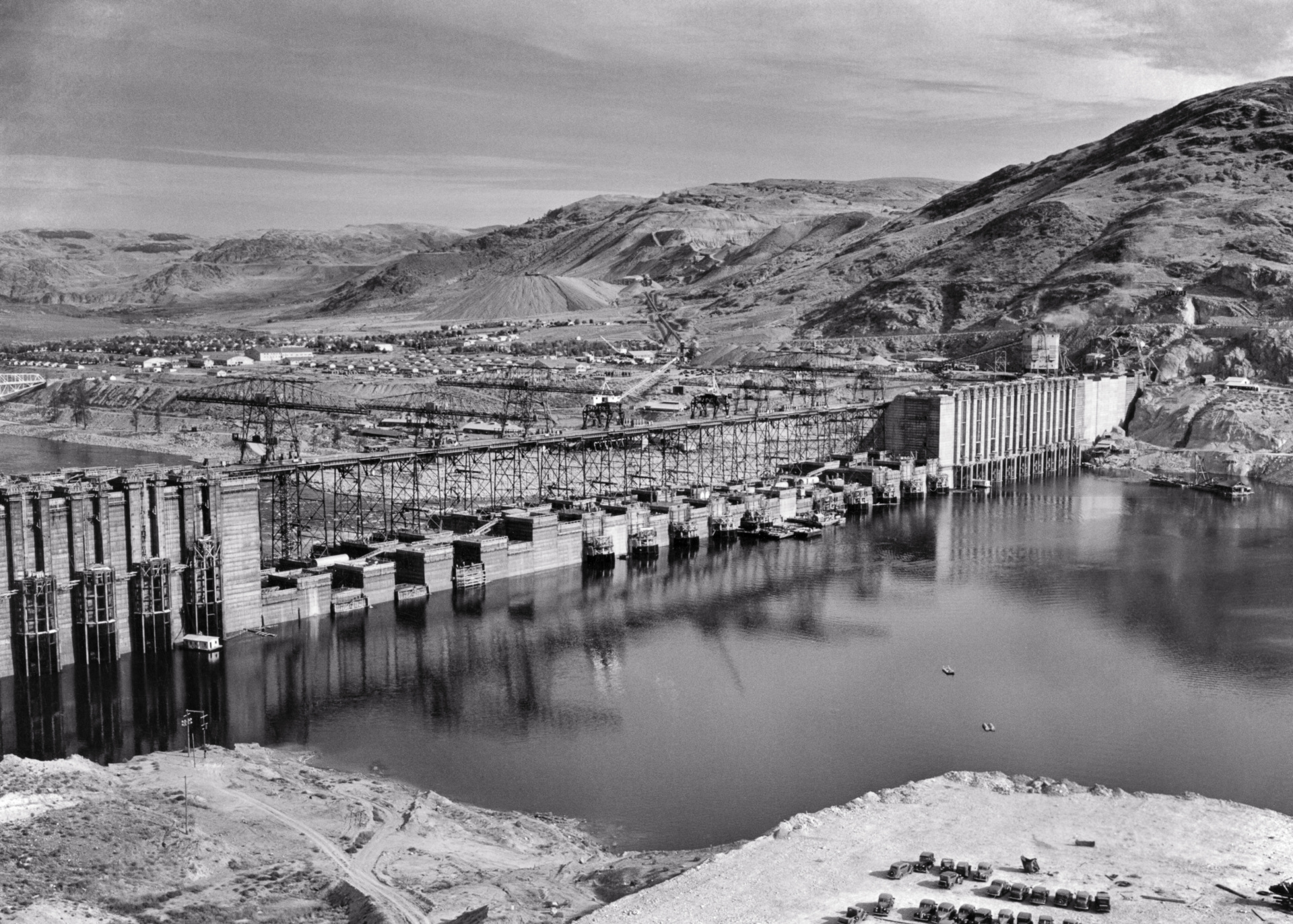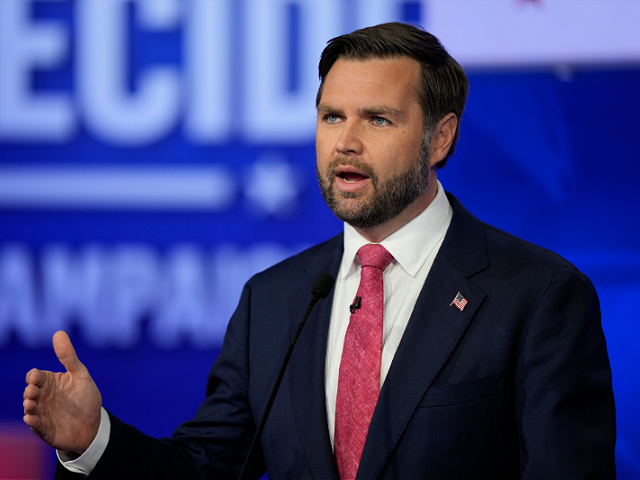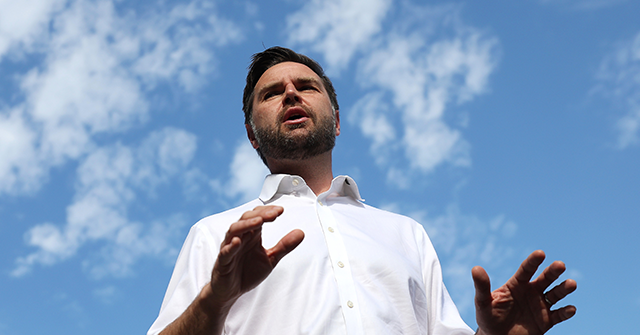The ground is shifting in the 2024 presidential campaign. If Donald Trump and JD Vance win this November, that will be literally a true statement because Trump and Vance want to use federal land to create more housing and wealth for Americans.
Needless to say, green liberals hate the idea.
Most Americans are only vaguely aware that the federal government owns 28 percent of the land in the United States. There was never any particular reason for this federal land-grabbing. It just sort of happened in the 19th century, as nobody wanted to live on arid or remote swathes of territory.
Of course, there’s great value in scenic national parks, and yet the U.S. president most associated with those parks, Theodore Roosevelt, also believed in land development. TR established the Bureau or Reclamation as a unit of the Interior Department. His guiding idea was to preserve a few “crown jewels” (the Grand Canyon, Yellowstone) and then use most of the remaining land for people as the country expanded.
President Roosevelt at Yosemite, circa 1903. (Photo by Library of Congress/Corbis/VCG via Getty Images)
The explicit goal of the Bureau was just that: reclaiming empty land for human use, especially for housing. As TR said in 1902, “The sound and steady development of the West depends upon the building up of homes therein.”
To that end, through most of the 20th century, Uncle Sam built public works aimed at making land livable, including the dams on the Columbia River, which to this day give the Pacific Northwest cheap electricity.
But then, in the late 20th century, green environmental groups took over. They shifted the paradigm from growth to anti-growth and from pro-people to anti-people. Under green sway, the feds are busy removing dams.

1930s 1940s The Base of the Grand Coulee Dam on the Columbia River is seen under construction in the 1930s and ’40s in Washington state. (H. Armstrong Roberts/Classicstock/Getty Images)
But now comes a different way of thinking, recalling the original TR worldview. And it was on display during the vice presidential debate on October 1. CBS News’ Margaret Brennan cued it up: “Senator Vance, as far as your campaign’s position, the promise is to seize federal lands.” (Note the loaded word, seize. CBS gotta CBS.)
Brennan’s specific question—intended, of course, as an accusation—was on housing. But Vance, seeing it coming, raised her one, adding in energy: “As Donald Trump says, ‘Drill, baby, drill.’” Those words were popularized by then-Alaska governor Sarah Palin in 2008, referring to the overall idea that America’s abundant natural resources should be used for the benefit of Americans.
Brennan, proving herself to be a trouper of a blue-dotter, went after Vance yet again: “Where are you going to seize the federal lands.”
Vance answered, “Well, what Donald Trump has said is we have a lot of federal lands that aren’t being used for anything. They’re not being used for national parks. They’re not being used. And they could be places where we build a lot of housing.”

Republican vice presidential nominee Sen. JD Vance (R-OH) speaks during a vice presidential debate hosted by CBS News on Oct. 1, 2024, in New York. (AP Photo/Matt Rourke)
The tradeoff between federal landlording and housing is especially acute in Wyoming, where the feds own more than 48 percent of the land. A look at federal land ownership in the Cowboy State shows off-limits ground all over, including in the midst of developed areas. This has become a flashpoint in and around the resort of Jackson Hole; service workers find themselves priced out of the local market.
In response, Wyoming’s two Republican Senators, John Barrasso and Cynthia Lummis, have proposed a legislative fix: Helping Open Underutilized Space to Ensure Shelter (HOUSES). As Lummis said last year, “The HOUSES Act frees up some federal land to be purchased and repurposed for residential development and helps western families fulfill and continue to live the American dream.”
The HOUSES bill, which other Republicans support, is an obvious “supply-side” solution to a shortage: If there’s not enough supply, add supply.
By contrast, a much different proposal, from Vice President Kamala Harris, will only bid up demand not add supply. Her plan, giving first-time homebuyers $25,000 toward a down payment, sounds nice (especially for those getting free money), but it would make the housing problem worse, as it would boost already high demand and so goose housing prices.
But of course, Harris-type Democrats are never going to increase supply because that would mean going against the wishes of hegemonic liberal elites, who believe that federal lands should be kept forever—and expanded whenever possible.
The donor-class vision of America is, in fact, a kind of green imperialism. The belief that lands, from Alaska to Florida, are best managed from Washington, D.C.—with, of course, help from lawyers and trust-funders in various blue dots around the country.
To be sure, federal lands are a complicated issue, with plenty of competing ideas and interests. That’s why it’s best that the decision-making be close to the people themselves. As the Constitution prescribes, whenever possible, the states should have sovereignty. Back in 1932, Supreme Court Justice Louis Brandeis put it well: The states should be the “laboratories of democracy.”
There’s another big benefit to state-based experimentation: the fuller use natural resources. Referring to oil, Trump said at the Republican National Convention in Milwaukee, “We have more liquid gold under our feet than any other country by far. We are a nation that has the opportunity to make an absolute fortune with its energy.”
“Fortune” is for sure the right word. According to the Institute for Energy Research, oil resources in the U.S. total more than two trillion barrels. At the current price of around $75 a barrel, that’s some $160 trillion. (Of course, if fighting in the Middle East spills over to the Persian Gulf, then the price of oil could go way higher, and the national security imperative of more domestic production gets much stronger.)
In addition, America is blessed with just as much natural gas and even more coal. For the sake of jobs and wealth, all these carbon fuels could be cleaned up and consumed.
But of course, Biden-Harris-type Democrats don’t want to do that. The current administration came into office with dreams of Net Zero, that mythical vision of no CO2, only windmills and solar panels. Needless to say, that proved not possible, and so the Biden-Harrisites settled for simply opposing carbon energy production at every possible decision point. (Even the Federal Emergency Management Administration got into the act; FEMA has nothing better to do, eh?)
Trump has also called for using federal lands to support a “a new American industrialism.” As he said in Savannah on September 24, “We will set up special zones of federal land with ultra-low taxes and regulations for American producers.” These will, he pledged, “create entire industries.”
Needless to say, a reindustrialization policy would be controversial. However, everything is controversial nowadays: That’s what we get with red-blue polarization.
Yet polarization can prove to be an opportunity, as it encourages the states to be not just laboratories of democracy, but laboratories of prosperity.
If national politics are paralyzed because they’re polarized, right-minded states should start using their God-given bounty: building housing, drilling and digging for energy (and other natural resources), and fostering new industries. As Trump says, “Make America Rich Again.”
Needless to say, not every state will want this: Some will bow down to the green gods, prostrating their economy on the altar of eco-austerity. A dubious choice, to be sure, and yet the same Constitution that protects a state’s right to growth also protects its right to de-growth. So, if some states choose to be laboratories of poverty, well, at least the rest of us can learn from their bad example.
